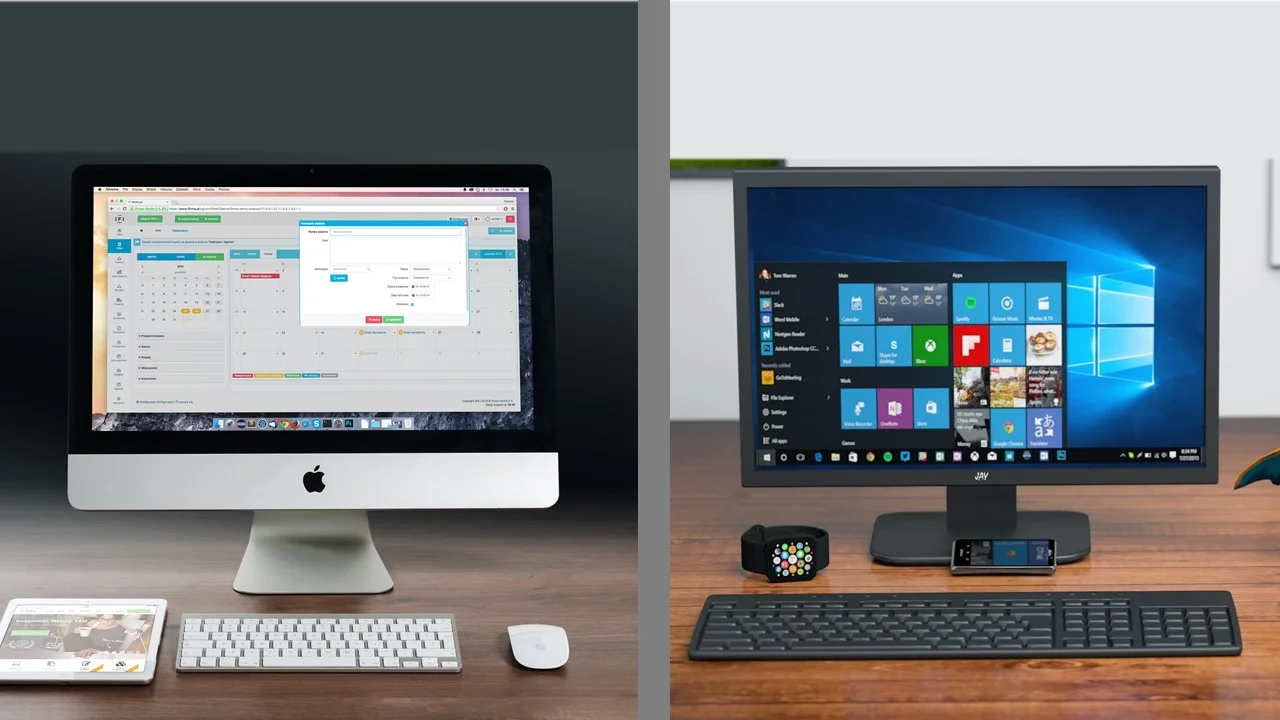It’s the ultimate question in the computer world. Should you go with Mac or PC? If you ask a hundred experts, you’ll get a hundred answers. And, this is a binary question! The truth is that both systems have and continue to evolve rapidly. Macs and PC’s each have their strengths and weaknesses, so we’ll help you consider the practical differences to inform your decision.
Variety vs Consistency
The PC vs Mac argument essentially boils down to this comparison. PCs come in a ridiculous range of packages. The variety difference between the platforms is so wide and disparaged that it’s difficult to express in meaningful terms. Simply put, there is a PC for everything. On the other side, Macs come in only a handful of hardware packages, and the out-of-box software is identical for any new Mac. On the surface, this might sound like a compelling argument to go with PC, but in reality, there is a complete trade-off of benefits even when you only compare the variety.
The pro for Macs in this category is consistency. When you buy a Mac, you know exactly what you are getting. Hardware specs vary pretty widely across the seven available devices, but even the minimum you can get in a MacBook Air is powerful and reliable. Mac users in any business can communicate seamlessly, and you never have to worry about new third-party software only working with some devices. As long as the Mac hasn’t reached obsolescence (which usually takes at least five years), it can run the latest and greatest.
This consistency has particular value in replacement parts. Since the Macs are essentially using identical hardware, you can get spare parts in bulk. The lack of compatibility concern makes maintenance and repair simpler and in many cases cheaper. There is a reason large companies look to uniformity in many purchasing decisions, and where uniformity has value, Macs hold a clear edge over PC’s.
The disparity among PC’s makes predictable consistency impossible. Even among comparable models from the same manufacturer, you’ll find different software suites out of the box. Hardware ranges are extraordinary and include multiple manufacturers and almost countless firmware varieties. Keeping track requires a meticulous approach, and it often adds to the burden placed on IT departments. Yet, PC’s are still wildly more popular than their Apple competitors. This mostly boils down to customization.
There is a PC that is optimized for virtually any job. Shopping PC gives you the option to tailor your spending. It also empowers users to get specific boosts in almost every field of work. Since no two of your employees have identical jobs and needs, enabling them to use unique technology setups could boost their performance.
Cost
Most purchasing decisions are driven by cost more than anything else, and everyone knows that PC’s are cheaper than Macs. Except, this view has the same problems as assuming the variety of PC is always better. By all means, you can get a PC for many hundreds of dollars less than a new Mac, but the overall cost isn’t so straightforward. On average, the maintenance costs for PC’s are dramatically higher than Macs. PC’s also average a much higher turnover rate. Whereas you might only replace your Macs every five years, the shelf life on PC’s is typically in the three-year range. Obviously, the variable nature of PC’s lends to exceptions, but these are good ballpark figures to help you estimate long-term expenses.
Another hidden layer of cost is in software. Outside of extremely specialized work, most Macs can handle any job without additional apps or programs. Windows machines usually have a bare-bones operating system. Its compatibility enables you to add any special software you want, but it will cost money. When you factor in software costs, the price gap between Macs and PC’s shrinks considerably.
So, Which Is Better?
You may have come here for a definitive answer, but you’re going to hear the same response that often repeats in IT: it depends. On the large scale, Macs tend to be more popular with creativity-based jobs. Designers, from websites to clothing lines, prefer the Apple platform. On the other hand, analytical jobs like those in STEM fields lean heavily towards PC. Of course, these are just popular trends. Both machines are capable of doing both kinds of work and much more.
The ultimate secret is that you don’t have to marry either platform. In their modern incarnations, Macs and PC’s can communicate with each other with very little effort. More importantly, incorporating both into a business gives you better data integrity, reliability and peak performance. Consider this: aside from a total power failure, there are very few threats that can take all of your PC’s and Macs offline in a single swoop. Few vulnerabilities are shared by both, so integrating them into your system gives you a new dimension of reliability. This is reflected in the ways that each platform takes a different approach to automatic backups, encryption, and security. The hybridized technology is more robust.

